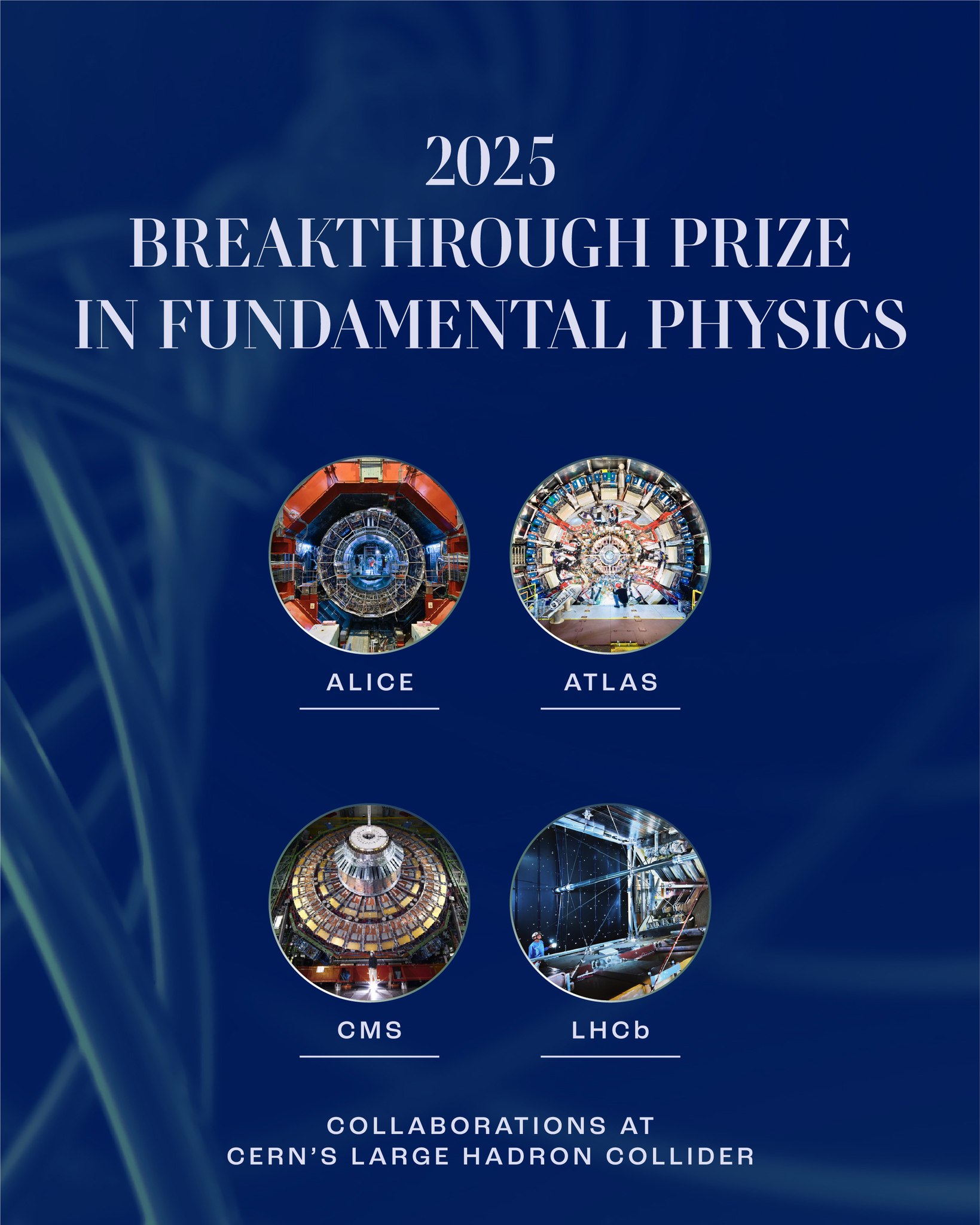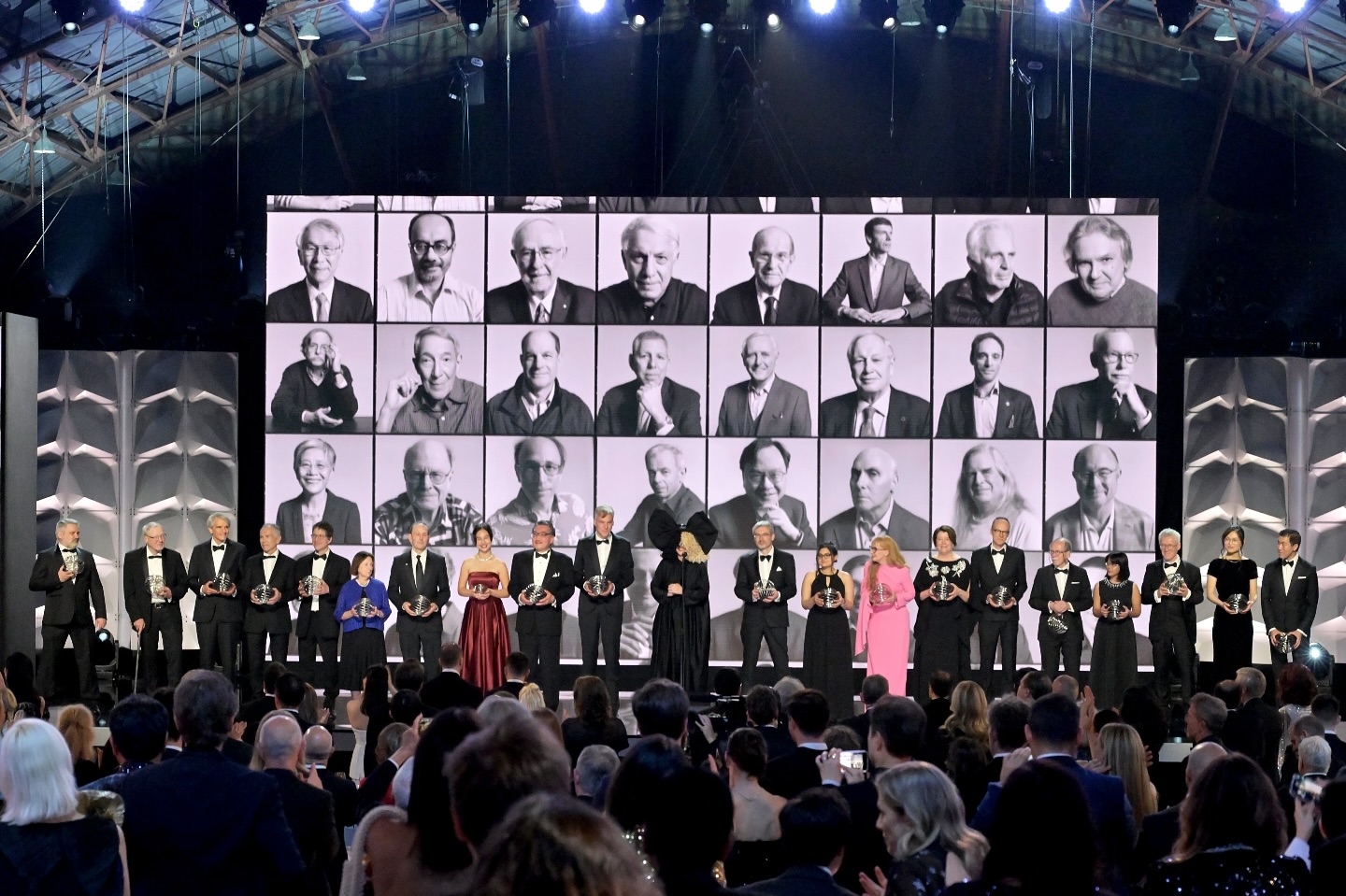Hungarian Researchers Involved in This Year’s Breakthrough Prize-Winning CERN Experiments
Researchers from several HUN-REN centres have been involved in the CERN experiments that have won this year’s Breakthrough Prize, announced last weekend in Los Angeles. The official award ceremony will take place on 12 April. In the Fundamental Physics category, more than 13,000 researchers – including scientists from the HUN-REN Wigner Research Centre for Physics (Wigner RCP) and the HUN-REN Institute for Nuclear Research (ATOMKI) – have received this prestigious international recognition for detailed measurements of the properties of the Higgs boson and for further research carried out at CERN’s Large Hadron Collider.
On 5 April in Los Angeles, the Breakthrough Prize Foundation announced that this year’s Breakthrough Prize in Fundamental Physics has been awarded to the four major experiments at CERN’s Large Hadron Collider: ALICE, ATLAS, CMS and LHCb. The prize recognises their contributions to the detailed measurement of the properties of the Higgs boson; the elucidation of the symmetry-breaking mechanism responsible for the generation of mass in elementary particles; the discovery of new strongly interacting particles; the study of rare processes and matter–antimatter asymmetry; and the exploration of the laws of nature at the shortest distances and under the most extreme conditions at the Large Hadron Collider (LHC). The award will be presented at a formal ceremony on 12 April, which will also be streamed on the Foundation’s YouTube channel.
The Breakthrough Prize was established in 2012 with the mission of celebrating individual achievements, recognising scientists as heroes of our society, and inspiring the next generation of researchers. It also aims to highlight the purpose of science and the value of scientific collaborations as apolitical endeavours for the benefit of all.

“By performing these extraordinarily precise and delicate tests, the LHC experiments have pushed the boundaries of knowledge of fundamental physics to unprecedented limits. They will continue to do so with the upcoming upgrade of the Large Hadron Collider, the High-Luminosity LHC, which aims to ramp up the performance of the LHC, starting in 2030, in order to increase the potential for discoveries,” CERN commented on the announcement.
This year's prize and its accompanying USD 3 million were shared among the 13,508 members of the four major CERN LHC collaborations: ALICE (USD 0.5 million; 1,869 members), ATLAS (USD 1 million; 5,345 members), CMS (USD 1 million; 4,550 members), and LHCb (USD 0.5 million; 1,744 members).
Among the recipients are researchers from the Institute for Particle and Nuclear Physics of the HUN-REN Wigner Research Centre for Physics, who participated in the experiments and contributed to the publication of scientific papers up to 15 July 2024, marking the end of the RUN2 data collection period. Researchers from the HUN-REN Institute for Nuclear Research, Eötvös Loránd University (ELTE), the University of Debrecen, and the Hungarian University of Agriculture and Life Sciences (MATE) are also involved in CERN’s four major LHC experiments and are likewise among the recipients.
Following consultations with the leaders of CERN’s LHC experiments, the Breakthrough Prize Foundation has donated 100% of the prize money to the CERN & Society Foundation. The funds will be used by the foundation to provide fellowships to PhD students from member institutions of the four major LHC collaborations, enabling them to spend a research period at CERN. During their stay, these young scientists will gain first-hand experience at the forefront of science and bring back new knowledge and expertise to their home countries and regions.
Hungarian researchers have also participated in previous Breakthrough Prize-winning projects. In February 2016, the Special Breakthrough Prize in Fundamental Physics was awarded to the 1,015 members of the LIGO and VIRGO collaborations for the discovery of gravitational waves – including three researchers from the HUN-REN Wigner RCP: Dániel Barta, Gergely Debreczeni and the late Mátyás Vasúth.


